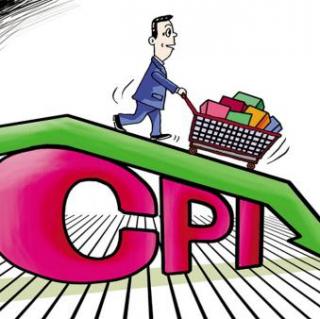
介绍:
China's consumer inflation hits 4-year low
China's consumer inflation softened last month, dipping to a 4-year low.
Analysts say it could give more room for monetary-policy easing.
The consumer price index or CPI climbed 1.6-percent last month, down 0.4 percentage points from August.
Pan Jiancheng is the deputy director of the China Economic Monitoring and Analysis Center of the National Bureau of Statistics.
He forecasts that the general down trend will continue.
"We believe the CPI will continue with a flat and gentle trend, and control within an annual rate of around 2 percent is very likely. It leaves a large space from the target of 3.5 percent set at the beginning of the year, so giving us valuable leeway for various reforms. "
At the same time, the producer price index, or PPI, dropped 1.8-percent last month, quicker than the 1.2-percent year-on-year decline in August.
This is the 31st consecutive decline in the gauge of factory-gate prices.
Pan Jiancheng explains that it indicates shrinking demand and rising production overcapacity amid slowing economic growth.
"The continuous decline of the PPI for two years is caused by both demand and supply factors. The growth of demand for industrial products is weakening, while, in terms of supply, the rapid increase of investment over past few years has resulted in excess capacity, which impedes the price rise of related products."
The drop of both CPI and PPI has increased the concern over deflation.
For more on this, CRI's Zhao Yang spoke earlier with Einar Tangen, former chairman of the State of Wisconsin's International Trade Council.
…
Back Anchor:
That was Einar Tangen, former chairman of the State of Wisconsin's International Trade Council.
China to buy 50 helicopters from Italy
Chinese aviation company BGA will reportedly sign a deal with Italian helicopter manufacturer Agusta Westland to buy 50 helicopters.
The deal is worth some 500 million U.S. dollars.
Agusta Westland is a leading helicopter manufacturer in Italy.
It has just established its China headquarters in Shanghai, aiming at expansion in the Chinese market.
Chinese Premier Li Keqiang and his Italian counterpart Matteo Renzi will witness the signing of the deal, along with another 15 commercial agreements.
South Korea cuts policy rates, lowers growth forecast
South Korea's central bank has decided to cut its policy interest rates for the second time this year, in a bid to further bolster its economic recovery.
The move brought the monetary policy rate to 2 percent, the lowest level since the middle of 2010.
Lee Ju-yeol is the Governor of the Bank of Korea.
"The committee will conduct monetary policy so as to maintain price stability over a medium-term horizon and pay greater attention to financial stability. In this process, it will closely monitor external risk factors, such as the shift in the US Federal Reserve's monetary policy stance, as well as the trends of household debt and of capital flows."
At the same time, the central bank has lowered the growth outlook for this year to 3.5 percent, down 0.3 percentage points.
The growth outlook for next year has also been revised down to 3.9 percent.
This comes despite recent economic indicators showing that domestic consumption in Asia's fourth-largest economy on the mend.
Last month's imports in South Korea rose at their fastest rate in 2 years. Exports also grew at their quickest pace in nine months, a good sign for the trade powerhouse.
China looks to build first luxury cruise ship
China is looking to build its first luxury cruise vessel, with help from cruise operator Carnival and Italian shipyard Fincantieri.
The move aims to expand domestic tourism in China.
Miami-based Carnival has signed a memorandum of understanding with the China State Shipbuilding Corporation or CSSC.
A joint venture is expected to be established, that would also include the Italian shipyard.
The chairman of CSSC says China currently needs about 50 luxury cruise ships and the number is expected to rise further in the coming years.
China's cruise industry is predicted to become one of the world's largest with 4.5 million passengers by 2020.
This will also help China's shipbuilding industry that has been hit hard by prolonged global shipping slumps.
That left many of its yards with high debt and a lack of orders.
The government has moved to support the industry, including providing subsidies and encouraging high-tech vessels.
Toyota recalls 1.67 million Toyota, Lexus cars
Japanese vehicle manufacturer Toyota will recall nearly 1.7 million vehicles globally in a voluntary move to address three separate defects including a faulty brake master cylinder that could hinder the performance of the brakes.

